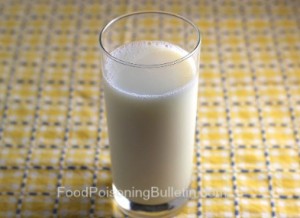 Children dominate a growing list of case patients in the outbreak of E. coli O157:H7 linked to the 22nd annual Milk Makers Festival in Whatcom County, Washington. According to the county health agency’s latest update, 41 people have fallen ill with classic E. coli symptoms after attending the Milk Makers event from schools all over the county. The working total of 41 case patients includes people who got sick after having close contact with a sick attendee. Seven of the 41 victims have been hospitalized, but the county has not said anything about their conditions.
Children dominate a growing list of case patients in the outbreak of E. coli O157:H7 linked to the 22nd annual Milk Makers Festival in Whatcom County, Washington. According to the county health agency’s latest update, 41 people have fallen ill with classic E. coli symptoms after attending the Milk Makers event from schools all over the county. The working total of 41 case patients includes people who got sick after having close contact with a sick attendee. Seven of the 41 victims have been hospitalized, but the county has not said anything about their conditions.
“Most of the cases involve children who attended the event,” said a news release from Whatcom County Health Officer Dr. Greg Stern. “Several older children involved with the event and some adults and close contacts of cases have also become ill. ”
Stern’s news release said the county is working along with state epidemiologists to determine if there was a common food or water source or activity, such as the petting zoo or other contact with livestock that may have caused the outbreak. Lab results due sometime this week could shed more light on the cause, according to the statement.
More than 1,300 Whatcom County first graders and their chaperones attended the three-day event hosted by Whatcom County Dairy Women late last month at the Northwest Fairgrounds. The organization is posting Milk Makers Fest E. coli updates online, noting Monday’s increase in the number of victims. “We are deeply saddened to hear that the number of E.coli cases continues to rise,” Monday’s update said. It also said there is still concern that sick individuals could pass the toxic E. coli bacteria to others because the outbreak is infectious.
“We continue to pray for the children, and now those close to them, who have become ill,” said Kim Vlas of the Milk Makers Fest.
E. coli O157:H7 can cause life-threatening HUS E. coli, or hemolytic uremic syndrome, in people of any age. But young people, especially those 5 years and younger, are the most susceptible to it. It starts with kidney failure and can lead as far as paralysis or death. E. coli lawyers have been contacted by some families and they are investigating how closely the school districts and event host maintained safeguards. Especially where petting zoos are concerned, outbreaks of toxic E. coli and other pathogens are well documented and the Centers for Disease Control and Prevention has for years endorsed a compendium of best practices and safety measures to prevent outbreaks at such events.




